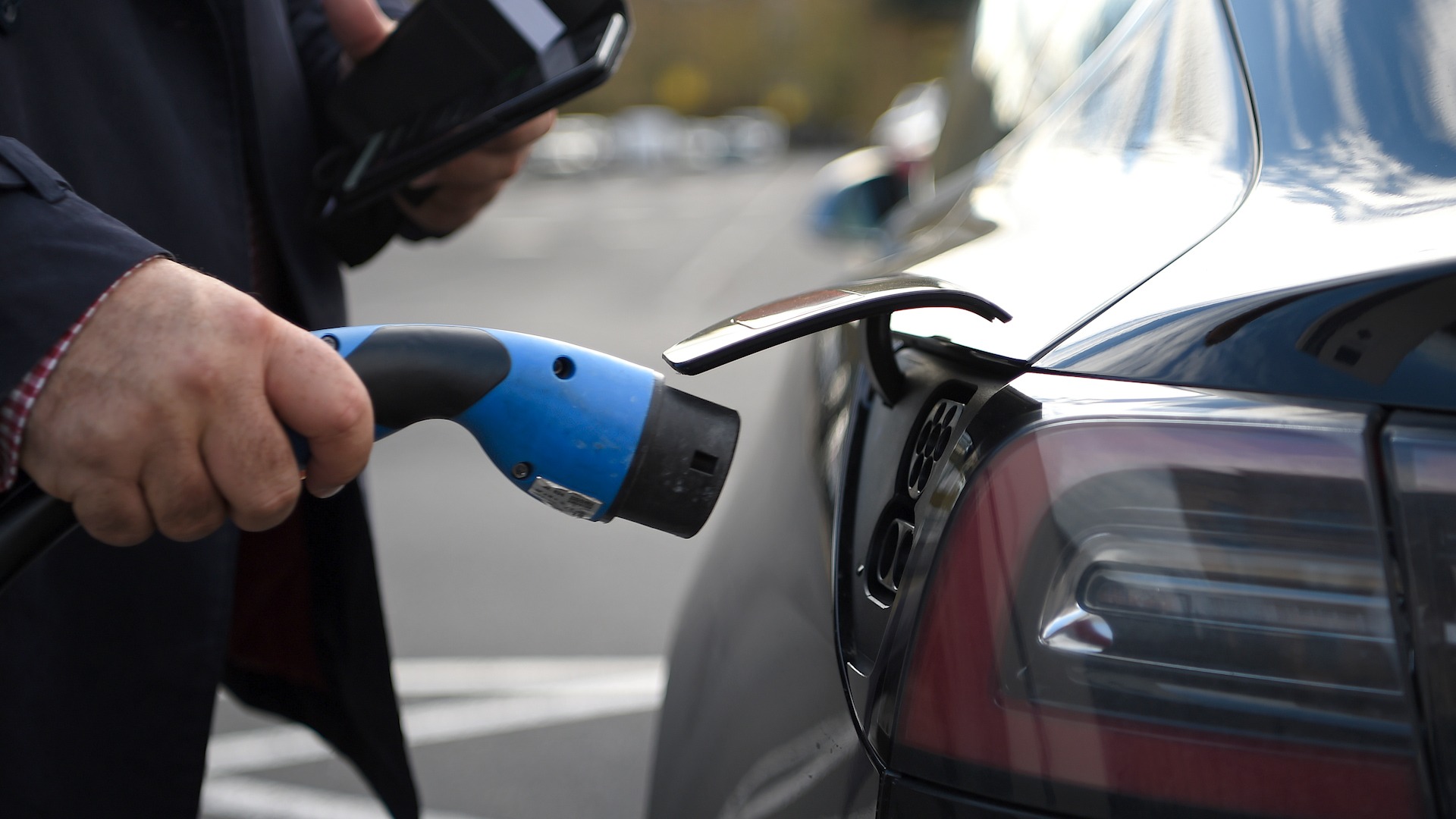02:40

Elon Musk says the electric car gigafactory Tesla is currently building outside Berlin could become the largest battery cell plant in the world and he was "excited about doing some original design" at the new factory.
"It will be capable of over 100 gigawatt hours (GWh) per year of production and then possibly over time going to 200 or 250 GWh a year," Musk said. "I am very confident that at that point it would be the largest battery cell plant in the world."
Musk went on to hint at the sort of cars Tesla will aim to produce first, revealing that a small compact car like a hatchback "would be a wise place to start."
"I was driving a model X around Berlin and we had quite a bit of trouble finding a parking spot where we could fit," he said. Adding: "It would make sense to do a compact car, perhaps a hatchback or something like that."

Tesla's Berlin factory will be its first production facility in Europe and could start churning out vehicles as soon as next summer. Eventually, it could assemble as many as 500,000 cars a year.
Investors clearly see the potential in electric power. Tesla's skyrocketing share price pushed Musk past Microsoft co-founder Bill Gates to become the world's second-richest person, only behind Amazon founder Jeff Bezos, according to the Bloomberg Billionaire Index. The 49-year-old's net worth now sits at an eye-watering $128 billion.
Musk, who is also the co-founder of the space exploration firm SpaceX, was speaking at the European Battery Conference on Tuesday, a three-day event exploring the future of battery production in Europe.

An artist's impression of Tesla's gigafactory outside Berlin, that owner Elon Musk says could become the biggest battery cell plant in the world. /Tesla
An artist's impression of Tesla's gigafactory outside Berlin, that owner Elon Musk says could become the biggest battery cell plant in the world. /Tesla
Green industrial revolution 'more important than fighting terrorism'
The EU sees its green transition as a golden ticket to the future – one filled with sustainable, competitive economies and an abundant source of new jobs. Batteries will be key to hitting the bloc's ambitious target of climate neutrality by 2050. They can cleanly power cars and store energy from wind turbines or solar farms, essential to wean Europe off fossil fuels without much sacrifice to living standards. Transport alone accounts for more than a quarter of Europe's greenhouse gas emissions.
"It is an industrial revolution," Germany's Minister for Economic Affairs and Energy Peter Altmaier told the conference. "It's more important than the fight against terrorism, and perhaps one day we'll say it's even more important than COVID-19."
European governments and firms have already invested billions of dollars in research and development, but the battery market is a crowded space. It's an industry dominated by China, which accounts for more than 80 percent of lithium-ion cell production. But Europe's efforts to make a mark are starting to pay off. Some 15 new battery cell plants are being built across Europe, including Chinese battery maker CATL's German facility and South Korea's SK Innovation's second factory in Hungary. By 2025, Brussels said European plants would provide enough cells to power at least 6 million electric vehicles.
"I am confident that by 2025, the EU will be able to produce enough battery cells to meet the needs of the European automotive industry and even to build our capacity," European Commission Vice President Maros Sefcovic told the crowd.

A Renault Captur hybrid car connected to a charging station at a dealership in Les Sorinieres. /Reuters
A Renault Captur hybrid car connected to a charging station at a dealership in Les Sorinieres. /Reuters
Affordability a major hindrance
The mass adoption of electric vehicles – crucial to helping Europe achieve its climate objectives – still faces significant hurdles, including affordability. Musk called high costs "the fundamental impediment." While prices have fallen significantly in the past decade, the average battery powering an electric vehicle costs about $7,350, according to BloombergNEF. It's about 55 percent more expensive per kilowatt-hour than a traditional internal combustion engine, putting these cars out of reach for many.
"We need to reduce emissions in the transport sector by 90 percent if we are to meet our 2050 climate goals," said Sefcovic. "Simply replacing internal combustion vehicles with electric equivalents will not do the trick. Electric cars still cause emissions."
Greening the entire supply chain – from raw materials, to production, to delivery – will require massive investment. But the pandemic has provided a new opportunity. Brussels has earmarked $650 billion in its recovery fund and next long-term budget for green initiatives – enough money to charge the battery industry for years to come.

